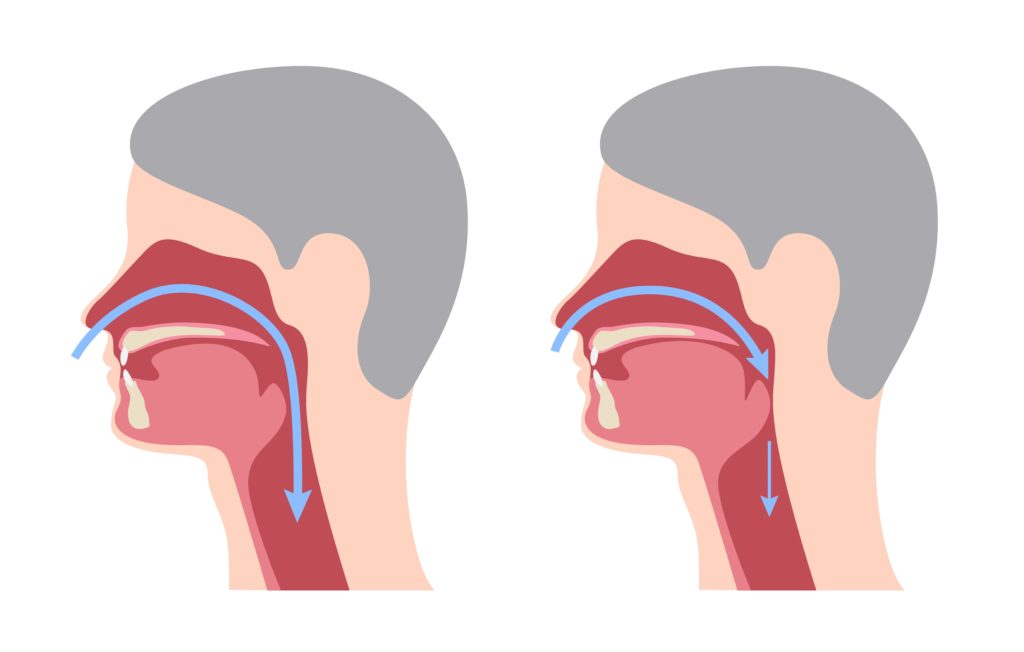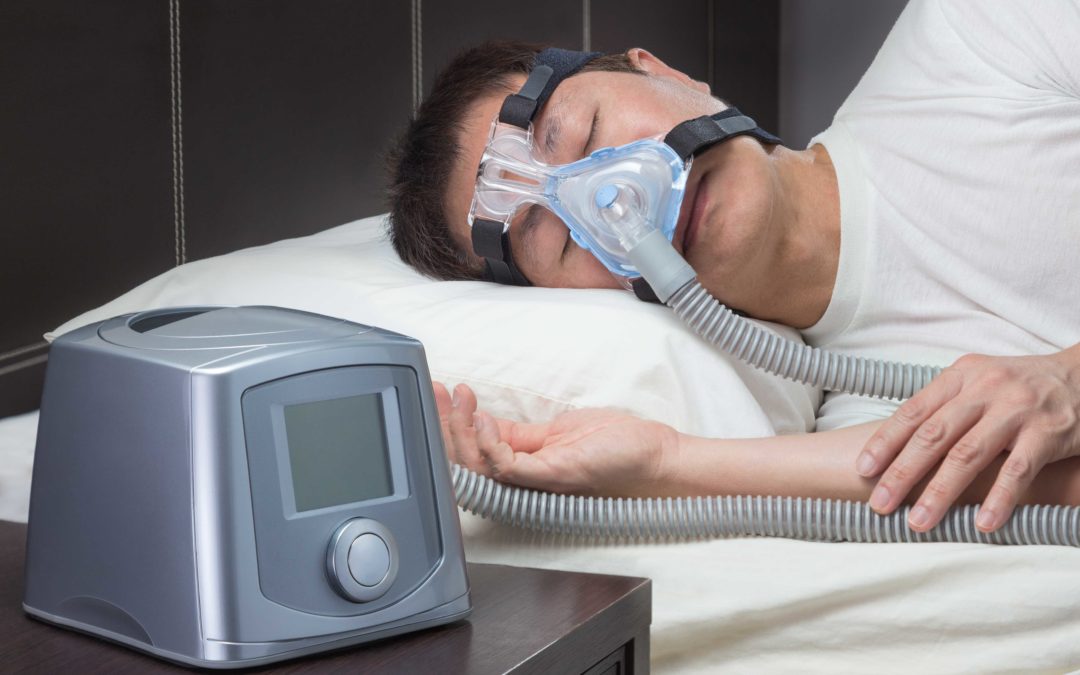The benefits of oral surgery and hygiene go a lot further then one may think. Problems with the jaw and mouth can be the root of many seemingly unrelated problems. For example oral pain could prevent you from sleeping or even cause severe migraines in some cases. One benefit in particular of oral surgery is that sometimes it can be used to address those suffering from sleep apnea.

What is Sleep Apnea?
Sleep apnea occurs when your breathing becomes irregular or is interrupted while you are asleep. This often results in sleep loss, extreme fatigue during the day, mental fogginess, and trouble remembering or paying attention to things. To break it down even further there are three types of sleep apnea:
- Obstructed Sleep Apnea (OSA): The most common form of sleep apnea and occurs when one’s breathing is interrupted by a physical blockage of their airways.
- Central Sleep Apnea (CSA): One’s breathing patterns are interrupted by problems with the brain’s respiratory control center.
- Mixed Sleep Apnea: (Sometimes referred to as complex sleep apnea) One’s breathing patterns are interrupted by factors of both CSA and OSA
Often times oral surgery is an extremely effective way to address Obstructive Sleep Apnea (OSA) if non-surgical methods have failed to provide better results.
Maxillomandibular Advancement (MMA)
Maxillomandibular Advancement is probably the most common and effective form of surgery to address Sleep Apnea patients. Basically it just involves adjustments to both the upper and lower jaw bone. This essentially adjusts the soft tissues of the mouth particularly the soft palate and the tongue to help prevent potential obstructions of the airways.
Soft Palate Surgery
Often times the soft palate is the primary source of these interruptions in one’s breathing while they’re asleep. Most of the surgeries involving the soft palate can involve removing a part of it or tightening it so that it is less likely to fall into a position where it may obstruct a person’s breathing.
Nasal Surgery
In a few cases surgeries aimed at the nasal cavities and airways prove to be the most effective. This could mean addressing things like a deviated septum, and/or helping to improve breathing and potentially addressing a number of other respiratory problems in the process.
Tongue Reduction Surgery
Tongue reduction surgery is never the preferred or ideal method of treatment but in some instances it can prove to be extremely beneficial. The concept is as straightforward as it sounds. The size of a person’s tongue can be surgically altered so that it isn’t as much of a risk to your airways.

Picking the Right Option
Sleep apnea can be very frustrating and can drastically affect your day to day activities so it’s best to get any problems addressed as soon as you experience them. Often times people will start noticing signs of sleep apnea but won’t address them right away and will wait until the problem has gotten worse.
Pinpointing the specific cause of your sleep apnea can be quite the task sometimes. The best surgery for you depends on a variety of factors such as the specific nature of your case and your overall health in general. Many times one specific approach isn’t enough and ideal treatment may include a variety of different methods.
Learn More
To learn more about sleep apnea and sedation dentistry Virginia Beach, it’s best to to talk to your local dentist and to be open about any and all of your concerns and observations. Our team at Mill Dam Dental would be more than happy to assist you with any problems you run into. For more informative readings like this one be sure to check out all of our other blogs.

